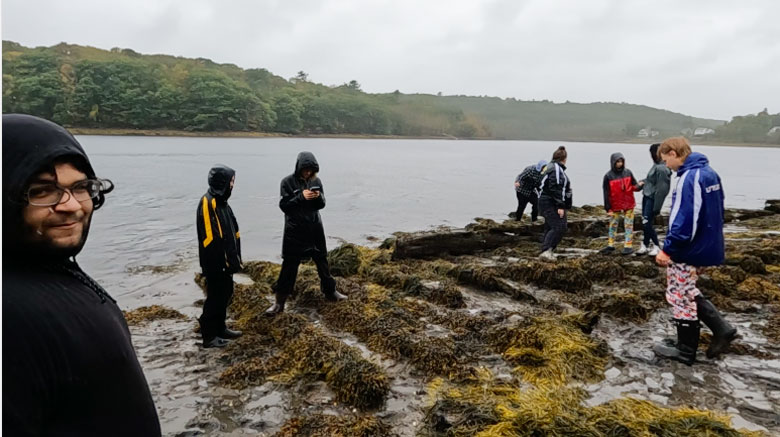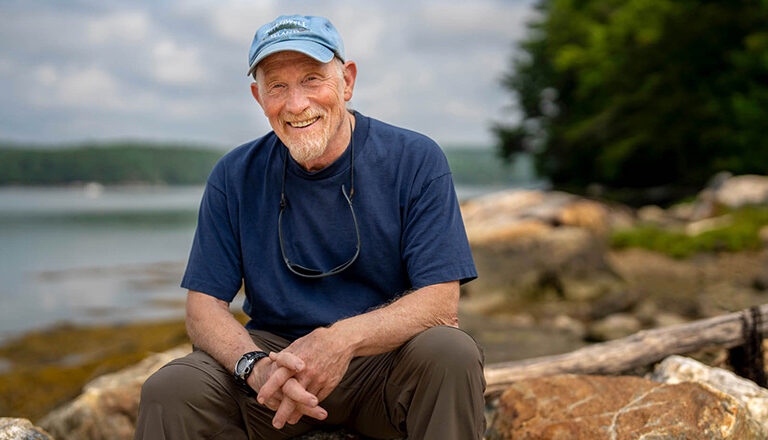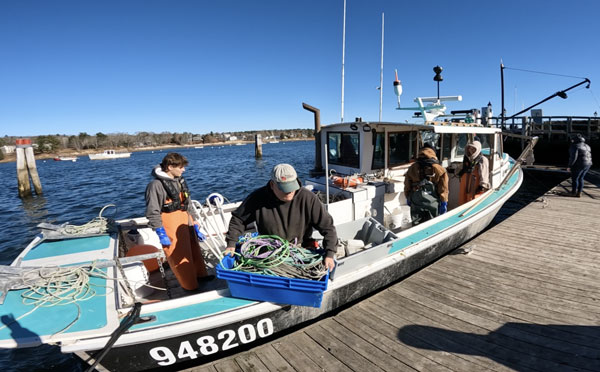
The ideas were flying, fast and furious, despite the trying circumstances.
As social distancing and remote learning redefined 2020’s educational landscape, Belfast Area High School history teacher Charles Lagerbom was meeting with a handful of likeminded colleagues to discuss a transformation of a very different sort.
Their goal was to grow the school’s existing marine curricular component from a loosely defined set of electives into a full-fledged, multidisciplinary program that would foster deeper connections between students and the Gulf of Maine ecosystem surrounding them.
The Belfast Marine Institute, as the initiative was later named, has come a long way in a short time, bolstered by significant funding and a clear educational framework that features multidisciplinary, STEAM-based coursework; student-led research; internship opportunities; and community engagement.
“In some of those very early meetings, we were kind of sitting there going, all right, what do we want? What do we want to do?” Lagerbom recalled.
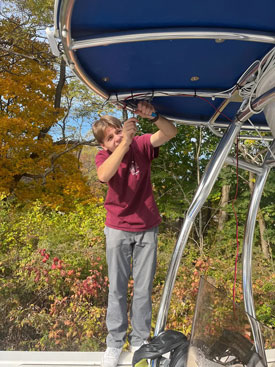
He and his colleagues settled on several essential objectives. They wanted their students to develop an appreciation of Maine’s marine resources; an understanding of the issues affecting the marine environment, and an awareness of the many marine-related scientific, technological, and commercial careers available to them. And there was one other goal, which reflected the educators’ hopes for the health and longevity of the state’s working waterfront.
“It was almost kind of selfish on our part,” Lagerbom said, “but it was to keep [students] in the area. To show them that you don’t have to go to Boston or New York or California if you want a marine-related career.”
In 2022, Belfast Area High School was awarded $250,000 in funding from the Maine Department of Education as part of the DOE’s Rethinking Responsive Education Ventures (RREV) program, which allowed the school to implement a pilot for the Marine Institute and Internship Program.
In the school’s grant application process, BAHS’s then-vice principal Jessica Woods emphasized the students’ desire for a clearer line between classroom curriculum and career options down the line.
“When the Marine Institute program was described to students as a flexible pathway to gain skills for jobs of the future through immersive field experiences and community-based internships in marine and maritime studies, over 90% of students responded that they would seriously consider enrolling.”
Woods also wrote of the school’s wish to better accommodate students with diverse interests, abilities, and socioeconomic backgrounds.
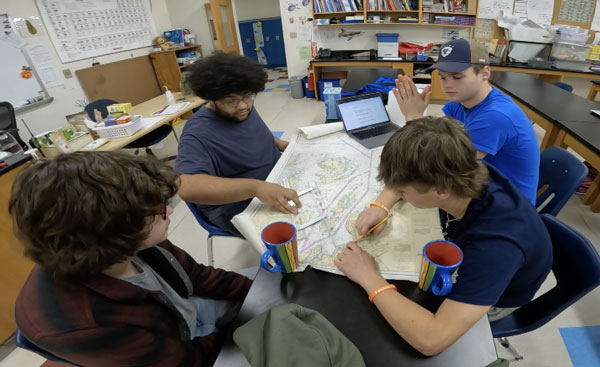
“Our students demonstrate a wide variety of needs and have an even larger range of career aspirations. These demographics necessitate the need for a flexibly designed program that could support combined [initiatives] such as marine biology research and marine diesel technology exploration in the same classroom.”
As the 2022-2023 school year unfolded, the Marine Institute became a hive of activity, buoyed by the RREV grant that would need to be spent within the next two years.
“We were awash in money and ideas,” Lagerbom recalled. “It was a whirlwind.”
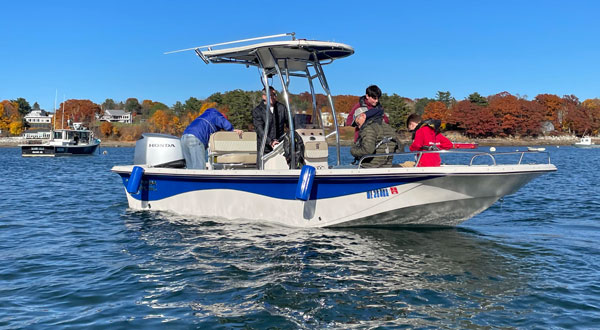
As problems go, it was a good one to have. The institute’s earliest orders of business included significant, strategic equipment purchases that would carry the program’s initiatives forward, even after the RREV funding ended.
That academic year saw the acquisition of an on-campus wet lab with a 500-gallon water tanker and kelp-growing materials, as well as a limited-purpose aquaculture license that permitted students to seed, and later harvest, the institute’s first kelp farm.
In the Marine Studies class, students also experienced diving through a SCUBA discovery course, and engaged with the community through field trips and involvement in Maine’s Fishermen’s Forum and World Oceans Day. They were also certified in cold water safety training, first aid, CPR, and AED—to the entire school’s immediate benefit.
“Each time we do that,” Lagerbom said, “there are 15, 20 new kids walking around the building who can save a life.”
By the time RREV funding concluded at the close of the 2023-2024 school year, the program’s resources included a new fleet of kayaks, a Sonde data recorder, a Garmin Chartplotter, a new ROV, and additional first aid and emergency equipment.
An additional $100,000 award from a RREV sustainability initiative allowed the institute to purchase a work boat: a 21-foot Carolina Skiff named Sea Lion, which has contributed to a growing sense of ownership and responsibility among students who are given every possible opportunity to learn the equipment—and then maintain it.
With two years of intense, grant-powered development behind it, the Marine Institute is now increasing its concentration on the practical applications of a broadening curriculum. As elective offerings expand to include topics like sea stories, navigation, ocean chemistry, small business development, computer science, and technical drawing, the teaching team is also eager to give students an early leg up on the job market with marine-related internship experience and access to formal accreditation in areas like small boat handling, aquaculture, and ROV/drone piloting.
On the administrative side, the institute’s costs are now a part of the RSU 71 annual budget, and the team will be seeking continued local support on its quest for long-term sustainability.
“It’s been interesting for us to be finding our place in the whole system,” Lagerbom said, who noted that, despite some inevitable bureaucratic hiccups, collective enthusiasm for the program from the school’s administration and broader regional community has been healthy. “A lot of great people and organizations have stepped up, and I think speaks very well for the program’s future.”
Lagerbom also puts great faith in the institute’s students, whose personal interests and goals continue to drive the program’s mission, and Lagerbom, personally.
“The enthusiasm in these kids has totally rejuvenated me as an educator,” he said. “I’m not worried about the future if it’s [led by] teenagers like these. Yes, there are distractions, there are challenges. But to see them come alive like they do over a set of whale bones or putting in a kelp farm… the future’s going to be fine. You get that switch flicked earlier than later, and there’s nothing these kids can’t do.”
